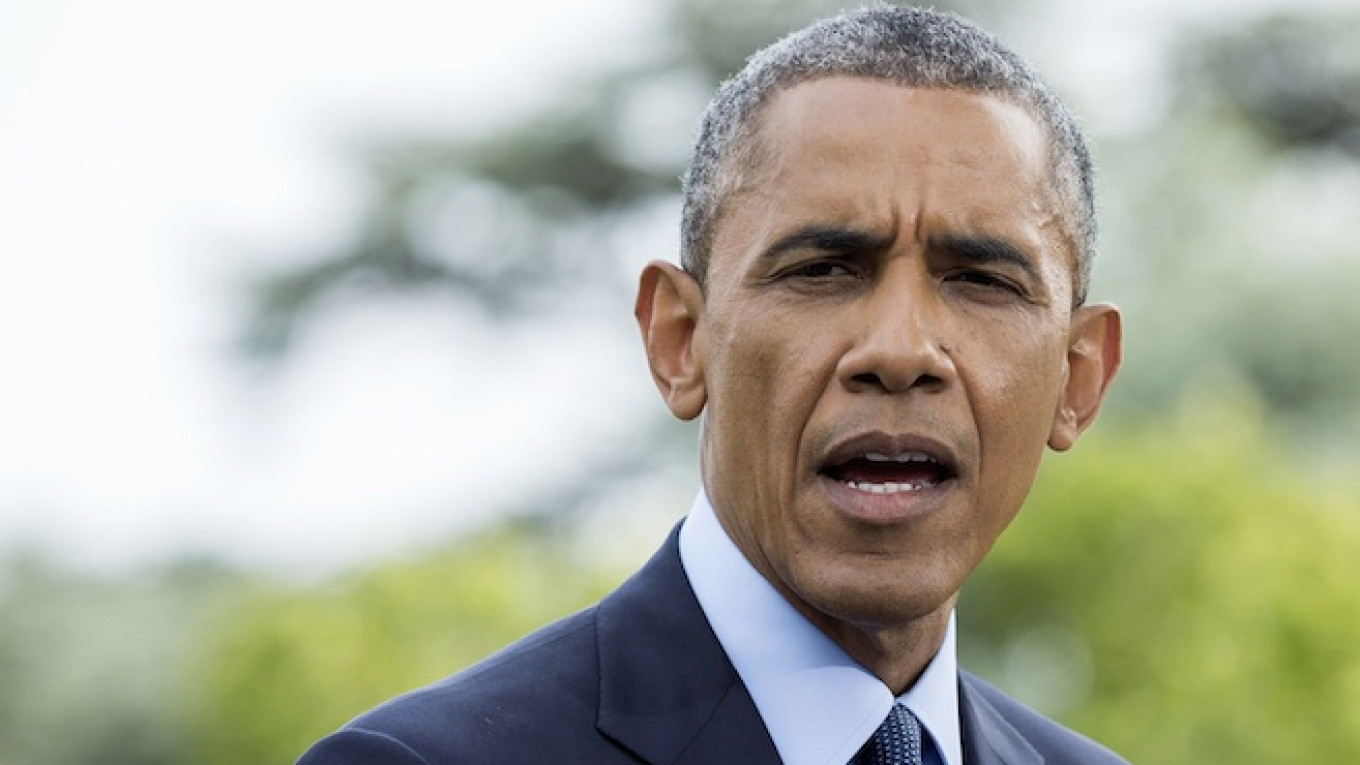U.S. President Barack Obama has escalated U.S. economic sanctions against Russia for its aggression against Ukraine but dismissed suggestions the growing chill in U.S.-Russian relations marks the start of a new Cold War.
The U.S. and the European Union, in a carefully coordinated action, announced Tuesday targeted new sanctions against Russian banks, energy and defense firms.
It was the West's most serious response yet to what it calls Russian instigation of and continuing support for the separatist uprising in the east and the downing of a Malaysian passenger jet on July 17 over eastern Ukraine.
Obama, speaking at the White House, said the sanctions would have a "greater impact on the Russian economy than we have seen so far" in a drive to force Moscow to stop backing the separatists.
Until now, Europe had stopped short of tougher steps against Russia for fear of retaliation. Obama said the new sanctions were a sign of "the waning patience Europe has with nice words from [Russian President Vladimir] Putin that are not matched by actions."
Senior U.S. officials voiced growing alarm about a Russian troop buildup on the border with eastern Ukraine and a continued supply of heavy weaponry to the separatists.
These are signs that, so far at least, the sanctions are not forcing Putin to back down despite the damage the sanctions are doing to the Russian economy.
"It's not a new Cold War," Obama told reporters. "What it is, is a very specific issue related to Russia's unwillingness to recognize that Ukraine can chart its own path."
Still, Obama did not seem inclined to provide lethal military aid to Ukraine, saying the Ukraine military was "better armed than the separatists" and the issue at hand was "how to prevent bloodshed in eastern Ukraine."
But Republican Senator Marco Rubio, while applauding the new sanctions, voiced hope that Obama, along with European allies, "will also significantly increase our assistance, including military support, to the Ukrainian government."
"Russia's continued aggression against Ukraine cannot go unanswered, and we need to do much more to make clear that we and the rest of the free world stand with the people of Ukraine at this important moment," Rubio said in a statement.
Five Banks Now Under U.S. Sanctions
The new targets for sanctions included VTB, the Bank of Moscow, the Russian Agriculture Bank and the United Shipbuilding Corp., the Treasury Department said.
The sanctions on the three banks prohibit U.S. citizens or companies from dealing with debt carrying maturities longer than 90 days, or with new equity.
Five of the six largest state-owned banks in Russia are now under U.S. sanctions.
Also targeted was United Shipbuilding Corp, a shipbuilding company based on St. Petersburg, in a move that freezes any assets it may hold in the U.S. and prohibits all U.S. transactions with it.
The Commerce Department classified United Shipbuilding Corp as a defense technology company.
The new sanctions block the exports of specific goods and technologies to the Russian energy sector. The Commerce Department said it will deny any export, re-export or foreign transfer of items for use in Russia's energy sector that may be used for exploration or production of deepwater, Arctic offshore or shale projects that have the potential to produce oil.
Obama also formally suspended credit that encourages exports to Russia and financing for economic development projects in Russia. He warned there would be additional costs to Russia should Moscow not back down.
"Obviously, we cannot, in the end, make President Putin see more clearly," Obama said. "Ultimately, that's something President Putin has to do on his own."
The new U.S. sanctions were announced during a visit to Washington by Ukraine Foreign Minister Pavlo Klimkin, who discussed prospects for resolving the conflict with U.S. Secretary of State John Kerry.
Both Kerry and Klimkin told reporters further pressure on Russia was essential to halt the flow of men, money and weapons into eastern Ukraine, but said the U.S. and Ukraine were examining possible political steps that could be taken inside Ukraine to address Russian concerns.
See also:
A Message from The Moscow Times:
Dear readers,
We are facing unprecedented challenges. Russia's Prosecutor General's Office has designated The Moscow Times as an "undesirable" organization, criminalizing our work and putting our staff at risk of prosecution. This follows our earlier unjust labeling as a "foreign agent."
These actions are direct attempts to silence independent journalism in Russia. The authorities claim our work "discredits the decisions of the Russian leadership." We see things differently: we strive to provide accurate, unbiased reporting on Russia.
We, the journalists of The Moscow Times, refuse to be silenced. But to continue our work, we need your help.
Your support, no matter how small, makes a world of difference. If you can, please support us monthly starting from just $2. It's quick to set up, and every contribution makes a significant impact.
By supporting The Moscow Times, you're defending open, independent journalism in the face of repression. Thank you for standing with us.
Remind me later.






